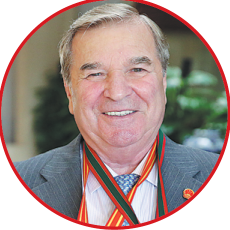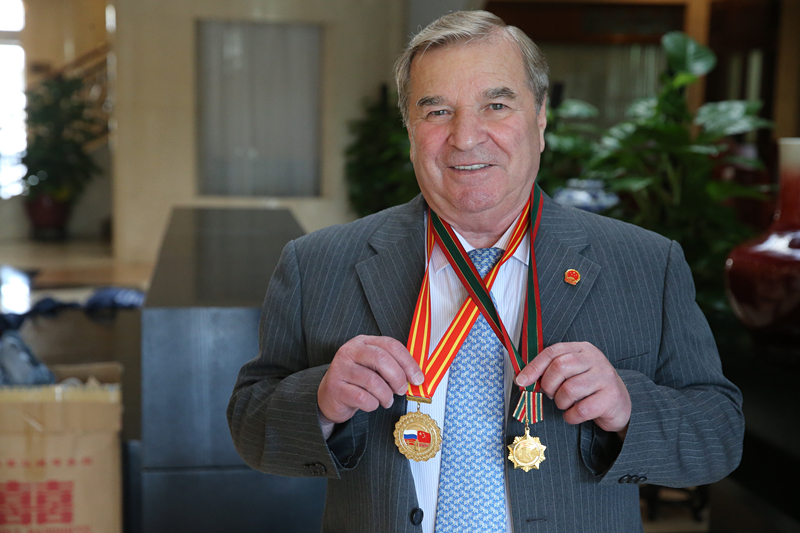
June 8, 1947, in Sumy, Ukraine
CAREER:
1988-91: Professor, People's Friendship University of Russia
1996-2000: Director, Ophthalmology Research Center, People's Friendship University of Russia
2000-present: Head of the Russian Expert Group of Daqing Ophthalmology Hospital
HONORS:
1997: Gold Medal awarded by Russian government
2009: China's Friendship Award
Russian doctor brings light back to patients

When Russian ophthalmologist Nikola Vasilyevich Dusan came to China for the first time 23 years ago, his luggage was filled with surgical equipment and items that were essential to operations.
"In the 1990s, glaucoma and cataract surgery, which are general ophthalmological operations today, used to be available only in big Chinese cities, such as Beijing and Shanghai," he said, speaking through a Russian translator.
A graduate of the Peoples' Friendship University of Russia, or RUDN, in Moscow, Dusan was regarded among the Russian capital's top four renowned ophthalmologists by the '90s, when he began visiting China at the request of fellow doctors.
In the northeastern province of Heilongjiang, where he first arrived, he saw that ophthalmological treatments were badly needed.
Dusan was serving as director of RUDN's Ophthalmology Research Center when he announced his retirement in 2002. Shortly after, he became an expert at Daqing Ophthalmic Hospital in Heilongjiang.
Since then, he has treated more than 100,000 patients in Daqing and operated on over 2,000.
"I'm really happy to have helped restore the vision of patients from almost every corner of Heilongjiang, as well as those from elsewhere. Their trust makes me more determined to stay," Dusan said.
In addition to treating patients, Dusan uses his extensive clinical experience to train other doctors at the hospital.
With enhancements in technologies shared around the globe, Dusan said the Daqing hospital has imported cutting-edge equipment from some of the world's biggest manufacturers. He added that his responsibility is to help its medics make full use of that equipment.
Every month, the Russian doctor provides two lectures for the medics at the hospital. In past years, he has also tutored seven Chinese ophthalmologists, including helping them with writing their theses and clinical supervision. Those doctors can now complete cataract surgery, corneal transplants and other complex procedures.
As a doctor, Dusan said he has been devoted to promoting pragmatic cooperation between Russia and China. As a result of his efforts, Daqing Ophthalmic Hospital and RUDN's Ophthalmology Research Center signed a cooperation agreement in 2017 on joint academic research, teaching and personnel exchanges.
Dusan was presented with the Friendship Award, the Chinese government's highest accolade for foreign residents, in 2009 for his contribution to medical treatments and education in the country.
In 2015, President Xi Jinping met with Dusan and 40 other Russian experts who have contributed to China's development during a visit to Moscow, where he joined Russian President Vladimir Putin to mark the 70th anniversary of victory in World War II.
"I'm honored, not only because I am an ophthalmologist who has brought light back to patients in both my motherland and China but also for being a friendship ambassador between China and Russia, bridging cultural differences between the two world giants for more mutual understanding and cooperation," Dusan said.
The Daqing hospital conducts about 20 corneal transplants a year, but Dusan said China has a shortage of donors. He has been trying to raise public awareness on the importance of donations.
"Cornea donation is very meaningful, both to the donor and the receiver," he said. "The donations keep part of the donors alive. This should be known to more people."


